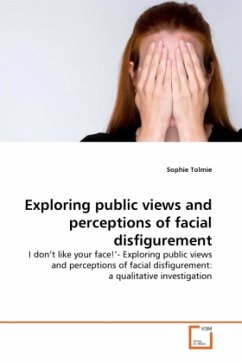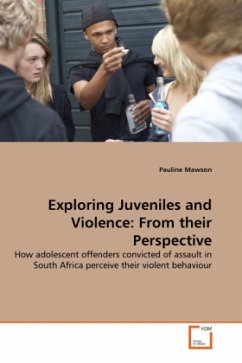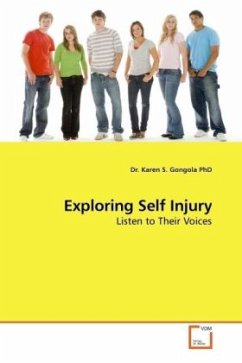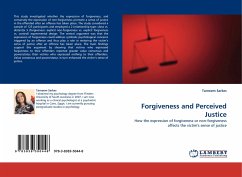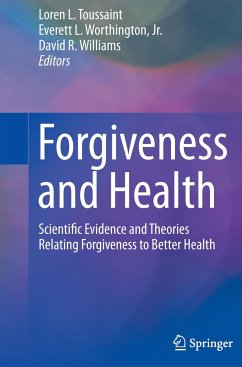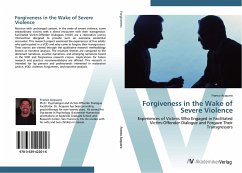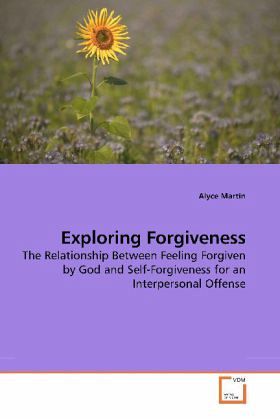
Exploring Forgiveness
The Relationship Between Feeling Forgiven by God and Self-Forgiveness for an Interpersonal Offense
Versandkostenfrei!
Versandfertig in 6-10 Tagen
32,99 €
inkl. MwSt.

PAYBACK Punkte
16 °P sammeln!
Recent literature shows that self-forgiveness may promote psychological health and well-being. Because of the potential benefits of self- forgiveness, researchers have attempted to identify factors that may facilitate the self-forgiveness process. One such facilitator may be the experience of feeling forgiven by God. Feeling forgiven by God, or the experience of divine forgiveness, has been linked with feelings of self-acceptance and other markers of well-being. Accordingly, the present study examined the relationship between divine forgiveness and self-forgiveness in two samples of participan...
Recent literature shows that self-forgiveness may promote psychological health and well-being. Because of the potential benefits of self- forgiveness, researchers have attempted to identify factors that may facilitate the self-forgiveness process. One such facilitator may be the experience of feeling forgiven by God. Feeling forgiven by God, or the experience of divine forgiveness, has been linked with feelings of self-acceptance and other markers of well-being. Accordingly, the present study examined the relationship between divine forgiveness and self-forgiveness in two samples of participants: college students and a general sample of adults. Two hundred sixteen participants (n=108 per sample) wrote about an incident where they might have offended someone and completed questionnaires in an online format. Separate analyses were conducted for each sample of participants. As predicted, the experience of divine forgiveness predicted self-forgiveness over and above other predictors of self-forgiveness in both samples. Numerous spiritual, intrapersonal, and interpersonal factors were correlated with the experience of divine forgiveness.





